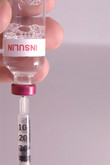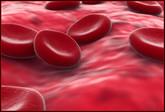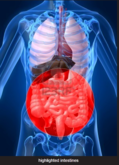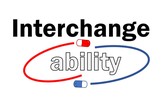Biosimilars
Public health impact of using biosimilars and relevance of automated follow-up
Biological reference drugs and biosimilars have highly complex structures. Biosimilars need to demonstrate their biosimilarity during their development but unpredictable variations can remain, such as micro-heterogeneity. The healthcare community may raise questions regarding the clinical outcomes induced by this micro-heterogeneity. Indeed, unwanted immune reactions may be induced for numerous reasons, including product variations. However, it is challenging to assess these unwanted immune reactions because of the multiplicity of causes and potential delays before any reaction. Moreover, safety assessments, as part of preclinical studies and clinical trials, may be of limited value with respect to immunogenicity assessments because they are performed on a standardized population during a limited period. Real-life data could therefore supplement the assessments of clinical trials by including data on the real-life use of biosimilars, such as switches. Furthermore, real-life data also include any economic incentives to prescribe or use biosimilars.
Pelmeg developed with aid of regulatory reform
The development of Pelmeg, a biosimilar of pegfilgrastim, revealed flexibility in the regulatory guidelines as they were superseded by state-of-the-art science, a study uncovers [1].
IVM releases toolbox on how to switch patients to insulin biosimilars
The Dutch Instituut voor Verantwoord Medicijngebruik (Institute for Responsible Medicines Use, IVM) has released a toolbox for healthcare providers on how to switch patients to insulin biosimilars.
Knowledge and perceptions about naming biosimilars in the US
Following the introduction of biosimilars, naming conventions for biologicals have been introduced, in part to support pharmacovigilance.
EC approves adalimumab biosimilar Yuflyma
On 15 February 2021, South Korea-based biotechnology company Celltrion Healthcare (Celltrion) announced that its adalimumab biosimilar, Yuflyma (CT P17), had received European Commission (EC) approval.
Approaches to naming and labelling of biosimilars
Naming and labelling of biosimilars has been a controversial issue and there is a long-standing debate regarding the naming of biologicals.
EMA recommends approval of four bevacizumab biosimilars
The European Medicines Agency’s (EMA) Committee for Medicinal Products for Human Use (CHMP) announced on 29 January 2021 that it had recommended granting marketing authorization for the bevacizumab biosimilars Alymsys and Oyavas. Then on 26 February 2021, the agency announced that it had recommended approval of the bevacizumab biosimilars Abevmy and Lextemy.
China accepts IND application for daratumumab copy biological HLX15
China-based drugmaker Shanghai Henlius Biotech (Henlius) announced on 13 January 2021 that the investigational new drug (IND) application for its daratumumab copy biological, HLX15, had been accepted by China’s drug regulator, the National Medical Products Administration (NMPA), allowing it to carry out clinical trials in the country.
Infliximab biosimilars for IBD patients: experience from Italy
In the last 20 years, biological drugs have become the mainstream therapy for patients affected by moderately-to-severely active inflammatory bowel disease (IBD), even though they are associated with a significant increase in health-related costs. After the expiry of patents on originator drugs, the advent of antitumour necrosis factor alfa (TNF-α) biosimilars resulted in considerable cost-savings and increased patients’ access to these drugs. After having completed registration trials in rheumatic diseases [1, 2], the infliximab biosimilar CT P13 obtained approval based on a comprehensive comparability exercise, for all other indications, including IBD. Accordingly, physicians started to increasingly prescribe biosimilars for patients with IBD – including those that were both anti-TNF-α naïve and experienced. There is growing evidence that early introduction of biological therapy in IBD is associated with more favourable outcomes in the medium to long term. Keeping that in mind, it follows that the advent of biosimilars has the potential to allow more patients to have access to biological therapy at an earlier stage of disease, which could contribute to prevent disease progression and damage accumulation, with a consequential improvement in patients’ quality of life.
Different approaches to the interchangeability of biosimilars
The interchangeability of biosimilars can sometimes be an emotive subject. Despite reservations by prescribers, payers and patients, many countries have implemented policies allowing for the substitution of biologicals with biosimilars. However, there is still a lack of harmonization around the world when it comes to how different countries or regions approach the interchangeability of biosimilars [1].













